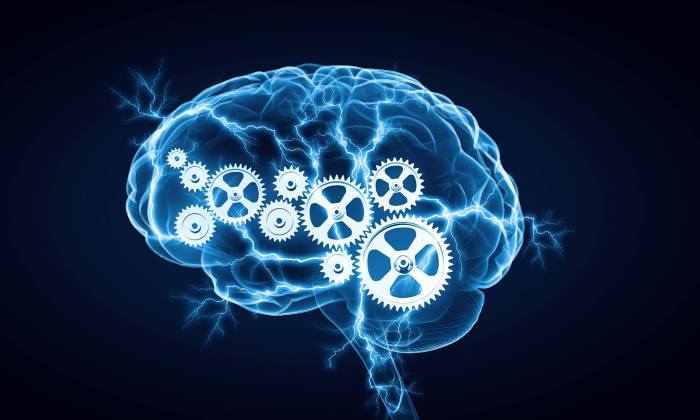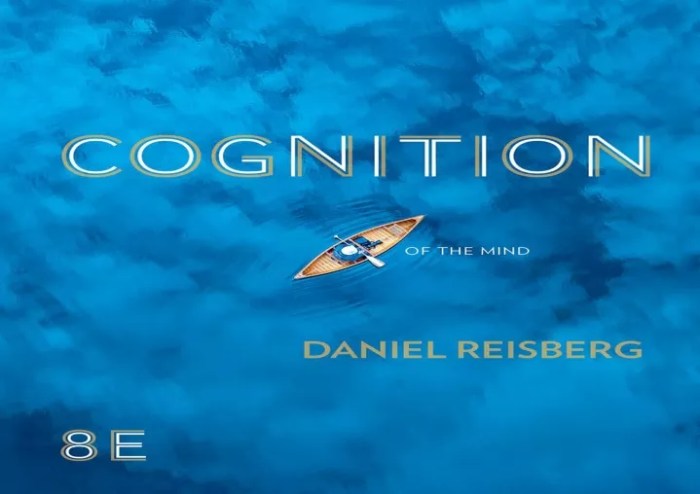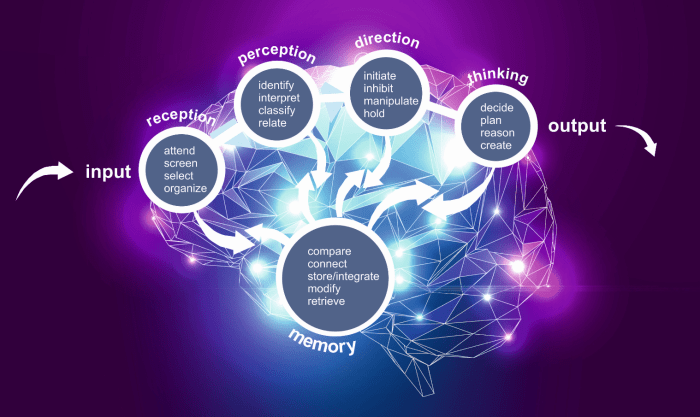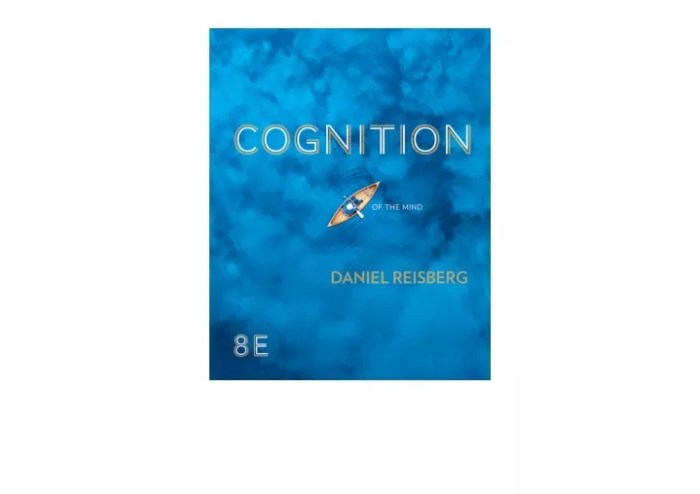Cognition exploring the science of the mind 8th edition – Cognition: Exploring the Science of the Mind, 8th Edition, delves into the fascinating realm of human cognition, providing a comprehensive overview of the core cognitive processes, brain structures, and factors that shape our mental abilities. This authoritative text offers a deep understanding of how we perceive, attend, remember, and communicate, revealing the intricate relationship between our brains and our cognitive experiences.
Throughout this edition, renowned authors explore the latest advancements in cognitive science, tracing the development of cognitive abilities from infancy to adulthood, examining the impact of cognitive disorders, and discussing the potential benefits and risks of cognitive enhancement techniques. With real-life examples and engaging case studies, this book illuminates the practical applications of cognitive skills in various aspects of our lives, from education and work to relationships and personal well-being.
Cognitive Processes

Cognitive processes are the mental operations that allow us to perceive, attend to, remember, and communicate information. These processes are essential for our everyday functioning, and they are the foundation of our intelligence.
The core cognitive processes include:
- Perception: The process of taking in information through our senses and interpreting it.
- Attention: The process of focusing our mental resources on a particular stimulus or task.
- Memory: The process of storing and retrieving information.
- Language: The process of communicating information through symbols.
These processes are all interconnected, and they work together to allow us to interact with our environment and learn from our experiences.
Brain Structures and Cognition
The brain is the organ that controls our cognitive processes. Different brain structures are responsible for different cognitive functions.
For example, the hippocampus is responsible for memory formation, while the prefrontal cortex is responsible for executive functions, such as planning and decision-making.
The relationship between brain structures and cognition is complex, but it is clear that the brain is essential for our ability to think and learn.
Cognitive Development

Cognitive development refers to the changes in cognitive abilities that occur throughout the lifespan. These changes are most rapid during infancy and early childhood, but they continue to occur throughout adolescence and adulthood.
Cognitive development is influenced by a variety of factors, including genetics, environment, and education.
For example, children who are exposed to a stimulating environment and who have access to quality education are more likely to develop strong cognitive skills.
Cognitive Disorders
Cognitive disorders are conditions that impair cognitive function. These disorders can be caused by a variety of factors, including aging, disease, and injury.
The most common cognitive disorder is Alzheimer’s disease. Alzheimer’s disease is a progressive disorder that leads to memory loss, confusion, and eventually death.
Other cognitive disorders include dementia, Parkinson’s disease, and Huntington’s disease.
Cognitive Enhancement

Cognitive enhancement refers to the use of techniques to improve cognitive function.
These techniques can include brain training, medication, and lifestyle changes.
Brain training is a type of exercise that is designed to improve cognitive skills, such as memory and attention.
Medication can also be used to improve cognitive function. For example, cholinesterase inhibitors are used to treat Alzheimer’s disease.
Lifestyle changes, such as exercise and a healthy diet, can also improve cognitive function.
Cognition in Different Contexts

Cognition is essential for all aspects of life. We use our cognitive skills to learn, work, and interact with others.
For example, we use our memory to remember information, our attention to focus on tasks, and our language to communicate with others.
Cognitive skills are also important for success in school and work. For example, students who have strong cognitive skills are more likely to succeed in school, and employees who have strong cognitive skills are more likely to be successful in their careers.
Frequently Asked Questions: Cognition Exploring The Science Of The Mind 8th Edition
What are the key cognitive processes discussed in this book?
Perception, attention, memory, and language are the core cognitive processes explored in Cognition: Exploring the Science of the Mind, 8th Edition.
How does this edition incorporate the latest advancements in cognitive science?
This edition includes updated content and research findings, reflecting the latest advancements in neuroimaging techniques, cognitive modeling, and the study of cognitive disorders.
What are some of the practical applications of cognitive skills?
Cognitive skills are essential for success in various aspects of life, including education, work, relationships, and personal well-being. This book provides examples of how cognitive abilities can be applied in these contexts.